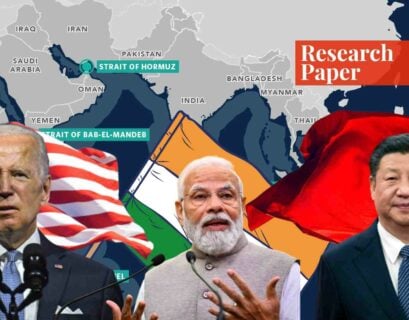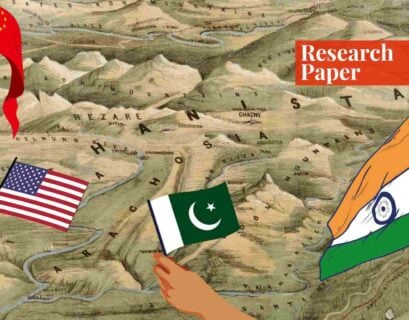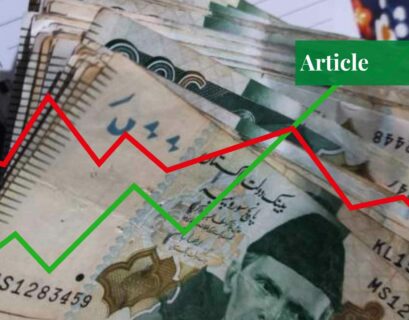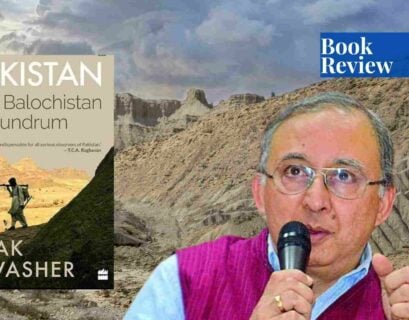Maryam Ibrahim has recently graduated from Lahore College for Women University with a bachelor's in international relations. Her sphere of interest includes the digitalization of international relations, specifically digital diplomacy.
Redefining Voters in Jammu and Kashmir
For the people of Kashmir, August has been a hapless month since 1947—a month of subjugation and disempowerment. Three years have passed since major reforms were implemented in Jammu and Kashmir on August 5, 2019, when the temporary special status of the state was revoked due to a resolution voted by the Parliament, rescinding the autonomy provided under articles 370 and 35A. With that abrogation, Kashmir became like any other state in India. So now, it’s operating on the one-country one-system principle. However, it begs the issue of where all of this is intended to go.
Other things were supposed to happen after the modifications to Jammu and Kashmir’s constitutional position, and one of them is now happening. And that’s in line with the announcement made by the state’s chief electoral officer, Hirdesh Kumar, who, on August 18, 2022, said that a new voter registration process will be implemented in Jammu and Kashmir.
According to the official, it is not necessary for someone to hold a residence certificate from Jammu and Kashmir (J&K) in order to register to vote. Hence, non-local voters can now have voting rights in J&K. “An employee, a student, a laborer, or anyone from outside who is living ordinarily in J&K can enlist his or her name in the voting list. The documents will be scrutinized by the government officials who will take a decision after being satisfied by the claim,” said Hirdesh Kumar.
A shift in the demographic balance or image in the valley or in Jammu and Kashmir is now worrying the locals, especially the Muslim locals. How might a population shift occur? There was concern that the Bharatiya Janata Party (BJP) administration would settle people from beyond the valley. It may resemble the so-called Israeli solution in certain ways—similar to what Israel has accomplished on the West Bank.
The residents worry that the BJP would bring in non-local Indian citizens, particularly Hindus, for voting in J&K, upsetting the political system and affecting voter turnout. The decision, which was made public by the top electoral official of the federally administered territory, is anticipated to boost the number of voters by a staggering 30 percent, from the current 7.6 million to roughly 2.5 million additional voters.
Effect of Non-local voting on J&K Elections
Dehli has been in charge of administering Kashmir for the past four years; no elected administration has been there. The coalition government between Mehbooba Mufti’s PDP (Jammu and Kashmir Peoples Democratic Party) and the BJP collapsed in 2018. Since that time, Kashmir has been governed by the central government, and as of 2019, it is also a union territory. This can no longer continue indefinitely.
There’s a good possibility that Kashmir will have elections the following year. From the BJP’s perspective, what’s the point of doing all this if it cannot come into power or have a decisive say in Kashmir? It might have been partners with PDP but still, because the valley has more seats in the state assembly and also the valley is 97% Muslim, the BJP has not been able to completely control Kashmir so far.
Demographic Background
If we see the demography of Jammu and Kashmir as per the census of 2011—the last to be conducted in the state—there are about 12.5 million people (1.25 crore) in Kashmir—although Ladakh (a part of Kashmir) has now been taken away. A little over 68.3% of the people in J&K practiced Islam, while 28.4% were Hindus, and tiny minority groups were Sikhs (1.9%), Buddhists (0.9%), and Christians (0.3%). This indicates that just over two-thirds were Muslims. Out of the 12.5 million residents in the valley, 8 million Muslims called it home. That is the nub of the issue
It is exceedingly difficult for the BJP, which is mainly a party of the Hindu majority, to gain ground there. For instance, in UP (Uttar Pradesh), it obtained a two-thirds or similar majority without electing or even fielding a single Muslim candidate. Hence, the BJP is a Hindu majority rule party as a result. So, as long as the Kashmir valley is made up of 97% Muslims, it will be difficult for them to advance.
Redrawing the Electoral Constituencies
The list of reconfigured electoral districts in Indian-administrated Kashmir, which gives greater representation to the region’s Hindu communities and has prompted criticism from political parties in the valley, was made public by Prime Minister Narendra Modi’s administration. In the process, constituencies are also being increased. Delimitation is carried out by the commission.
A government-appointed delimitation panel determined 90 assembly constituencies for the former state of Jammu and Kashmir on May 5th; Ladakh was excluded. Jammu received 43 seats and Kashmir received 47. This is seen as a BJP cloud. So these electoral roles and allowing non-local residents to register for voting in J&K, combined with delimitation is an effort to disenfranchise. It means taking the preservative power that the people of the valley hold.
Backlash on the Decision
Opposition lawmakers, many of whom were once supporters of Modi’s right-wing Bharatiya Janata Party (BJP), are incensed by the change to the region’s electoral map and accuse the delimitation committee of “gerrymandering” the area and “disempower[ing] Muslims.”
Indian opposition parties and politicians from Kashmir have denounced the government’s new election regulations. Omar Abdullah, the head of the National Conference, claimed that the BJP’s “insecurity” regarding the support in the area was what motivated the move. In response to the decision, he tweeted, “Is the BJP so insecure about support from genuine supporters of J&K that it needs to import temporary voters to win seats? None of these things will help the BJP when the people of J&K are given a chance to exercise their franchise.”
The former Kashmiri chief minister, Mehbooba Mufti, called the decision “the last nail in the coffin of electoral democracy” in the area. Later, when speaking to the media, she criticized the BJP’s policy in Jammu and Kashmir while making references to Nazi Germany and Palestine. She said, “Democracy is in danger. They are simply trying to bring in 25 lakh BJP voters through the backdoor.”
Siddiq Wahid, an academic and political analyst, told Al Jazeera that he thinks the BJP government’s motive in allowing non-local voting in J&K is “to get a Hindu chief minister” in the region. According to him, “The aim is very simple: to make Kashmiris alien in their own land.”
If you want to submit your articles and/or research papers, please check the Submissions page.
The views and opinions expressed in this article/paper are the author’s own and do not necessarily reflect the editorial position of Paradigm Shift.


















